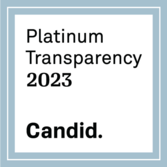Clean Ocean Advocate, April 2005
Jennifer Samson, Ph.D., 732-872-0111, Science@cleanoceanaction.org
Wreck Pond Permit Update
The NJ Department of Environmental Protection (NJDEP) Land Use Division was given a waiver of the 90-day decision deadline for the permit application for the Wreck Pond Pipe Outfall Extension. The waiver was requested because a key study was not completed by the March 3rd deadline.
While COA is encouraged that NJDEP delayed any decision until data is available, we are concerned that the informal and unfamiliar nature of the waiver process is not conducive to full public participation. NJDEP assured COA that full access to the data will be provided as it becomes available. In response, COA sent a letter to NJDEP Land Use (see our website, “Issues & Campaigns” and “Coastal Water Quality”). COA requested that public hearings be scheduled after all the applications (for both the pipe extension and dredging permits) are ”deemed complete” and before the permits are issued. It is important that NJDEP include the concerns of citizens around Wreck Pond who have worked hard to improve and protect the watershed. Citizens should be informed of the proposed projects and review the data with enough time to submit comments.
Mercury in Fish
A recent study by Drs. Burger, Stern, and Gochfeld (Rutgers University and University of Medicine and Dentistry of NJ) compared mercury levels in different commercially available fish from NJ markets. The study indicated a significant difference in mercury concentrations between three commonly available fish (tuna, bluefish, and flounder fillets), with tuna being the highest in mercury and flounder the lowest. A regional difference was also found with flounder purchased from Jersey Shore markets containing higher mercury levels than those purchased in north, central, or south Jersey. However, mercury levels in all flounder were still quite low, and these fish are considered a good choice for consumers.
In this study, fish considered low in mercury included flounder, porgy, whiting, scallops, and shrimp (larger shrimp had lower levels than smaller). Levels of mercury in tuna, sea bass, croaker, whiting, and shrimp were higher in NJ samples than Food and Drug Administration (FDA) reported levels. This study did not research the sources of mercury.
The entire article that appeared in the March 2005 issue of Environmental Health Perspectives is available on their website or at this link: http://ehp.niehs.nih.gov/members/2004/7315/7315.html.

